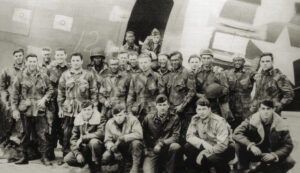NAME: Wenzel Ernst
DATES: 1839 to 1863
ALLEGIANCE: Confederate
HIGHEST RANK: Private
UNIT: 30th Texas Cavalry, 1st Texas Partisan Rangers
SERVICE RECORD: Enlisted in the 30th Texas Cavalry, Company E, on July 12, 1862, at Camp McCulloch near Buchanan, Texas. Patrolled the plains of Texas and the nearby Indian Territory for a year. Grew ill while serving near the Arkansas border in the summer of 1863. Died in late August or September.
The decision was inescapable: sooner or later, each Southern man had to choose between the Union and his state. Recent immigrants tended to side with the Union rather than forsake their newly adopted country. But Wenzel Ernst, a native of Germany, was one of the minority who chose state over country.
On July 12, 1862, 23-year-old Ernst mounted up and rode from his farm near Meridian, Texas–leaving behind his wife, Mary, and five-month-old daughter, Matilda–for Camp McCulloch, near Buchanan, about 30 miles to the north. There, he enlisted in the 30th Texas Cavalry, also known as the 1st Texas Partisan Rangers, and was assigned to Company E. This photo was taken in late 1862 in Palo Pinto County, north-central Texas. He is holding an 1844 Colt revolver and wearing a leather coat over his Sunday vest. Ernst’s enlistment papers alternately misprinted his surname as “Earnst” and “Earnest,” but Ernst apparently never bothered to have them corrected. Like many immigrants, he could neither read nor write English, and he signed his papers simply with an X.
Assigned to the District of Texas, New Mexico, and Arizona, the 30th Texas Cavalry was sent out to patrol the wheat fields of northeastern Texas and the Indian Territory (present-day Oklahoma). In early August 1863, Major General John B. Magruder, commander of the district, ordered the regiment to Fort Smith in east-central Arkansas, because “more danger of an invasion lay in that quarter.”
Ernst never reached Arkansas. As the men of the 30th approached the border, Ernst became gravely ill. His condition worsened rapidly, and he died sometime in late August or early September. Records do not name his illness or specify his date of death. They show only that he received his final pay on June 30. Ernst’s body was never sent home. He was probably buried in an unmarked grave somewhere in northeastern Texas.
Ernst’s widow later remarried, but received an unusual reminder of her first husband toward the turn of the century: a check arrived from the U.S. government in payment for Ernst’s military service. Even today, his descendants do not know why a Federal check was sent to a Confederate widow, and 30 years after the war.
SUBMITTED BY FRED BARBER OF LAS VEGAS, NEVADA




